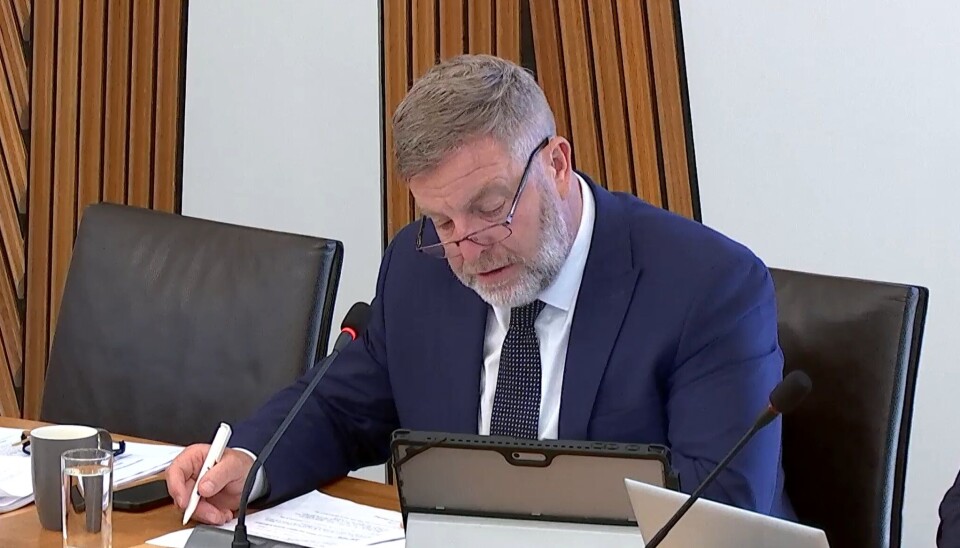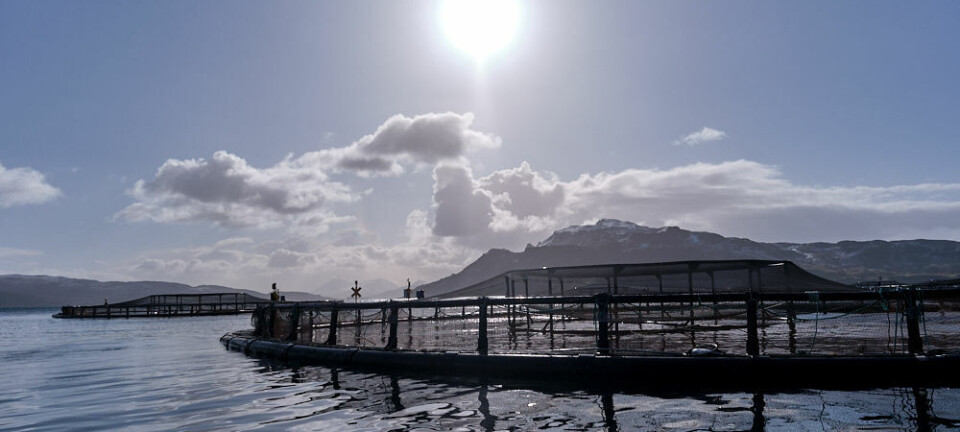
Transparency is your friend, committee convener tells salmon farming sector
Holyrood's Rural Affairs and Islands Committee has, among other things, asked the Scottish Government for mandatory reporting of fish mortalities. It will enhance public trust and prevent misinformation by activists, says MSP Finlay Carson.
Mandatory reporting of extra mortality data by Scotland’s fish farmers would lead to improved public trust in the sector, the convener of a Scottish Parliament committee has said.
Finlay Carson made the case for compulsory reporting while speaking to Fish Farming Expert about the Rural Affairs and Islands Committee (RAIC) report into salmon farming in Scotland, published today.
The report results from a RAIC inquiry into the sector last year, which aimed to examine what progress had been made after an inquiry and recommendations by its predecessor, the Rural Economy and Connectivity (REC) Committee, in 2018.
The RAIC report makes a number of recommendations to the Scottish Government. These include providing powers to a regulator such as the Fish Health Inspectorate (FHI) to limit or halt production at fish farms which record persistent high mortality rates, and the mandatory publication of more comprehensive and transparent mortality figures.
Mandatory data 'more trusted'
The recommendations are in part influenced by the fact that the mortality rate of farmed salmon from stocking at sea to harvest has been stuck at around 25% for several years, although the mortality percentage for 2024 is expected to be lower.
Carson says RAIC’s recommendations are focused on reducing mortality and reducing the “polarisation” between those who support or oppose salmon farming.
He acknowledged that more data has been shared by salmon sector trade body Salmon Scotland since the REC inquiry, but said the fact that it was provided voluntarily weakened its credibility.
The whole industry should be more transparent about what’s actually happening [which would] lead to less mistrust
RAIC convener Finlay Carson
“That leads to some concerns from community about whether that data is valid or stands up to scrutiny. So, we’ve asked for that data to be mandatorily published or provided to the government on a weekly basis.
“The industry already collects that data for its own purposes, so it’s not an extra burden on the industry. But the whole industry should be more transparent about what’s actually happening [which would] lead to less mistrust.”
A simpler website
RAIC also wants the Scottish Government’s Scotland’s Aquaculture website simplified to make it easier for the public to access information about fish farming, including mortalities, and Carson believes this would play a key role in preventing such information being mispresented by anti-fish farming groups.
“There’s so much data on the Scotland’s Aquaculture site that it’s a problem. You can't see the wood for the trees,” said Carson.
“What want to make sure that data is more accessible and user-friendly. It’s important that it’s presented in such a way that it can’t be misrepresented.
“At the moment, we have some stakeholders who are suggesting data gaps are because the industry don’t want to publish them because it would put the industry in bad light. The committee’s opinion was that the more data there is, the more trust there can be in the industry, and that what is happening on site [should be] reflected in the data.”
Public confidence
Asked whether it is necessary to make reporting mandatory to compel salmon farmers to provide more information, Carson said that in a lot of cases farmers already do so.
“But I think it (mandatory reporting) will give the public confidence that the data is robust, and also we need to ensure that there is a level of scrutiny of that data. It will give the public confidence. It may be that we've still got 25% mortality, but at least there's trust that these figures actually reflect what's happening in the industry. And I think that would go a long way to depolarising the argument.”
Carson linked the recommendation to give FHI power to limit or halt production at fish farms that had persistent high mortality with the need to enable farmers to move to more suitable sites, and for more research.
More responsive
“We commented on the need for government and industry to be more responsive and reactive to the challenges that climate change was bringing, and we need to do that if we’re to see reductions in mortality,” said the convener.
“The sort of things that we've done to hopefully address that include looking at more research. And we probably need more accountability and reporting to help back up that research.
“Extra powers are [recommended to be] given to the Fish Health Inspectorate to identify sites that are persistently showing high levels of mortality. So, that might be because they're just inappropriately located. But through the report, as well, we indicate that the ambition to see the ability for fish farms to be relocated is not working in practice. We've not actually seen any fish farms moved.
The ambition to see the ability for fish farms to be relocated is not working in practice. We've not actually seen any fish farms moved
Finlay Carson
“That's a concern, particularly given that was one of the desires of the REC committee and also a commitment from the government. Tied in with that was the lack of progress when it came to the planning pilots (to speed up applications for new fish farms). We don't know whether they're delivering anything at all.
“Nearly across the board, none of the witnesses, no matter what side of the debate they might have been on, indicated any evidence that those were working. That could effectively be a solution to some of the issues that should have been implemented by now. We're calling for these things to be accelerated.”
Emamectin benzoate
One of RAIC’s recommendations to government is that it should shorten the four-year period until the in-feed lice medicine emamectin benzoate, marketed as Slice, is effectively phased out. Carson conceded that the recommendation runs counter to the committee’s desire to reduce mortality, as it could lead to more mechanical delousing.
“The committee heard evidence to suggest that in some cases the treatment to lower the sea lice burden resulted in potentially more impact on fish welfare,” he said. “So, depending on the situation, it may be that a higher level of sea lice results in less of an animal welfare issue or lower mortality rates than if you were to put them through a Thermolicer or freshwater treatment or whatever.
“It forms part of the report, so there needs to be a careful examination of how various treatments to achieve various targets affects fish welfare. That's something we had considered.”
Environment comes first
Nonetheless, he said the committee's view was that there is evidence that emamectin is damaging to the environment, although evidence from the salmon sector said effects were insignificant. RAIC wants more research on the issue, and more resources to enable the Scottish Environment Protection Agency (SEPA) to carry out more sampling.
RAIC has called for the immediate end to the siting of salmon farms close to the vicinity of known wild salmon migratory routes, but Carson wasn’t able to cite any evidence that farms cause harm to wild fish. Instead, the call is a repeat of a demand from the REC Committee, based on the precautionary principle which Carson said had not been applied.
























































